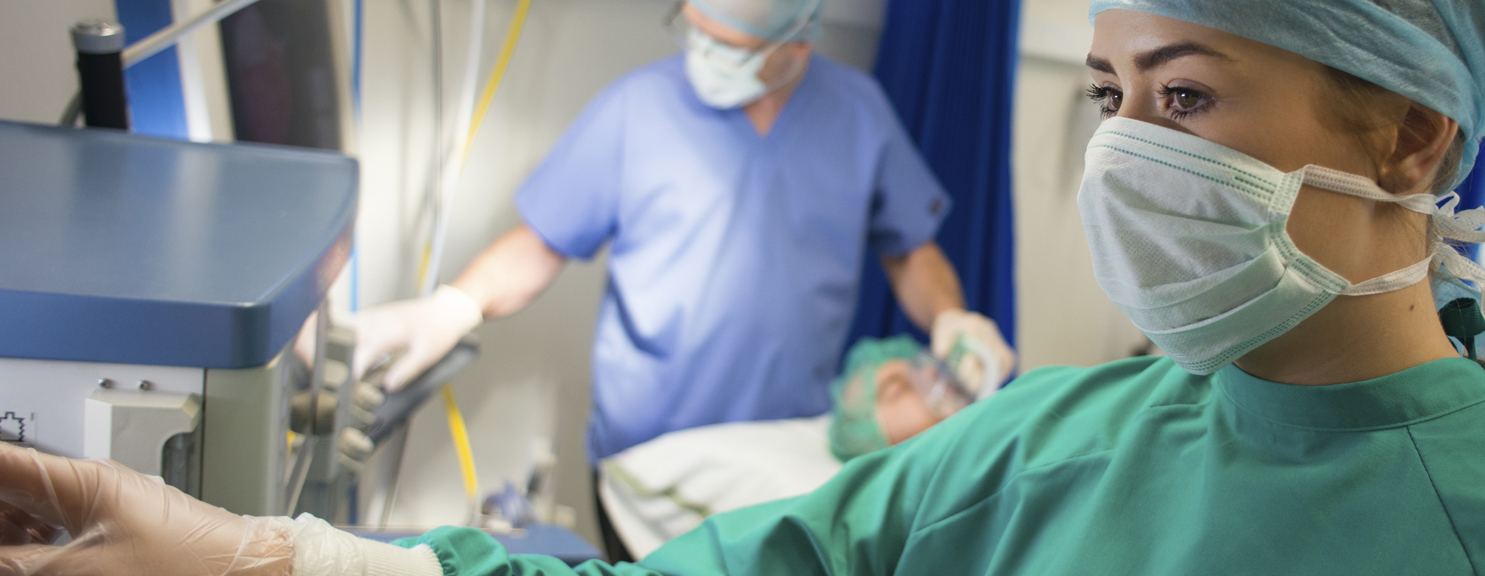What Do Perfusionists Do?
Perfusionists are skilled allied health professionals. They use medical technology to sustain the heart, lungs, circulatory, and respiratory functions of the body during surgery. Specifically, perfusionists operate a heart-lung (or cardiopulmonary bypass) machine that keeps oxygenated blood flowing throughout the body during surgery, and they also monitor blood circulation.
If a patient requires additional blood products or medications during the procedure, the perfusionist can administer these through the heart-lung machine. The perfusionist also supervises the patient’s body temperature by increasing or decreasing the temperature of the patient’s blood as it passes through the machine.
In addition to these critical responsibilities in the operating room, the perfusionist may evaluate and select new equipment, order supplies, and oversee technical support staff.
Where Do Perfusionists Work?
The majority of perfusionists work in hospitals as part of a surgical team. Some job opportunities also exist in research and development.
What Do Perfusionists Earn?
The Bureau of Labor Statistics does not publish employment and earnings data for perfusionists. According to salary.com, the median salary for perfusionists in the United States is approximately $150,880, slightly lower than the median salary of $161,000 in New York State. In NYS, perfusionists in the 25th percentile make approximately $145,240 while those in the 75th percentile make approximately $175,540.
Supply and Demand
There is increasing demand for perfusionists, due partly to an aging population that will require more open-heart surgeries, as well as an intensified focus on cardiac health in response to high heart-related mortality rates nationwide. The job market for perfusionists is competitive and small, and also provides a relatively high level of job security.
New York Educational Requirements
Most perfusion programs require the applicant to have a bachelor’s degree with a concentration in science, mathematics, medical technology, respiratory therapy, biological sciences, or nursing, though some schools offer an undergraduate degree specifically in cardiovascular perfusion. Graduate programs are generally one to four years long depending on the program objectives, prerequisites, and student qualifications. Students may receive a bachelor’s or master’s degree, or a certificate in clinical perfusion, depending on what program they select.
New York Certification/Licensure Requirements
New York does not require perfusionists to be licensed or certified, though certain employers may require national certification as a condition of employment. To become a certified clinical perfusionist (CCP), individuals must meet a series of requirements established by the American Board of Cardiovascular Perfusion (ABCP). For more about the ABCP and the requirements to become a CCP, click here.
Financial Support
The American Society of Extra-Corporeal Technology awards $1,500 annually to one student who exhibits outstanding academic achievement. Applicants must maintain at least a B+ grade point average. Additional information can be found at: http://www.aie.org/scholarships/.
Education Programs in the Northeastern U.S. (subject to change)
| SUNY Upstate Medical University 750 E. Adams Street Syracuse, NY 13210 (315) 464-4570 |
Quinnipiac University 275 Mount Carmel Avenue Hamden, CT 06518-1908 (203) 582-8672 or 1-800-462-1944 |
| Hofstra Northwell School of Grad Nursing & Physician Assistant Studies Cardiovascular Sciences & Perfusion Medicine, MS 119 Hofstra University Hempstead, NY 11549 (516) 463-6600 |
Additional Web Links
For more information on Perfusion, go to:
American Board of Cardiovascular Perfusion: www.abcp.org/index.html
New York State Society of Perfusionists: nyssp.com
[whohit]Perfusionists[/whohit]

